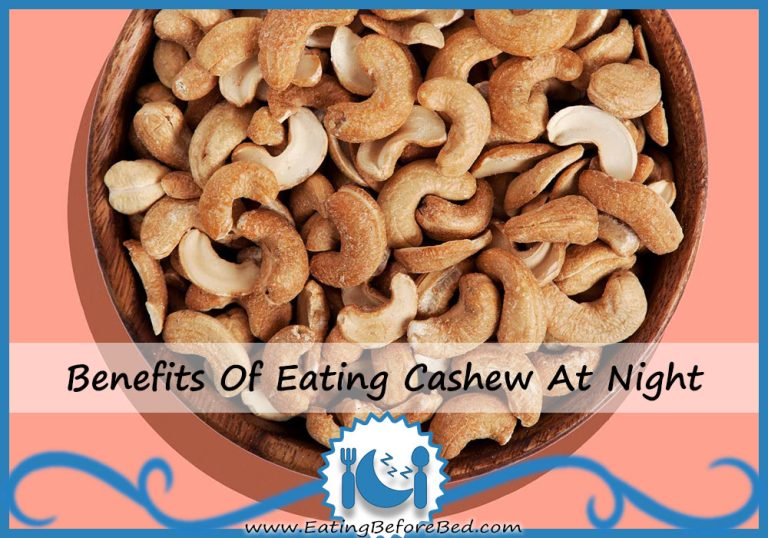What Are The Side Effects And Disadvantages Of Sleeping Immediately After Eating Meals Like Breakfast, Lunch Or Dinner? Is It Bad?

Some people have a habit of sleeping immediately after eating. This usually happens at noon and after lunch. After eating, many people become lazy and sleepy, but it is better to know that sleeping immediately after a heavy meal is very dangerous for the health of the body. If this habit continues for a long time, your body may be exposed to serious diseases such as digestive problems, weight gain, diabetes and even stroke.
Therefore, it is better to know what are the side effects of sleeping immediately after eating. Stay with us until the end of this article from EatingBeforeBed to introduce you to 6 of the most important Side Effects Of Sleeping After Eating.
We all know that sleeping on a full stomach is not right. But why exactly is this wrong and what harm does it do to us? Surely it has happened to all of us that we have just eaten, we are full, but we must try to keep our eyes open. Why is this and are we allowed to sleep?
In general, feeling a little sleepy after eating is completely normal and nothing to worry about. Several factors contribute to this phenomenon after eating.
Side Effects Of Sleeping Immediately After Eating
In the following, we explain 6 of the most important problems that we may encounter by sleeping immediately after eating.
1. Stomach pain (heartburn)
The problem of stomach pain or heartburn is very common in people who fall asleep after eating. The reason for this is that after eating food, the body starts to digest the food and the stomach acid starts to be secreted to digest the food. If you sleep immediately after eating, the return and excessive secretion of these acids will cause irritation and in the long run, it will cause stomach ulcer problem for the person.
2. Indigestion
If you fall asleep immediately after eating, your food will not be digested in the stomach. The reason for this is that after sleep, the body system is in a steady state and stops working. In this way, the digestion process stops or slows down during sleep, which causes problems in the digestive system.
3. Weight Gain
One of the consequences of sleeping after eating is obesity. If you are one of those people who fall asleep immediately after eating, your weight will increase after a short period of time. Because the body’s metabolism decreases during sleep and, as mentioned earlier, the digestive system will not work properly during sleep. Therefore, it is not surprising if your weight is increasing.

What Are The Effects Of Sleeping Immediately After Eating
In the following, we will tell the final 3 cases and in the next section, we will explain solutions to avoid these complications.
4. Diabetes
Usually, after eating food, the level of sugar (glucose) in the body increases. If you go to sleep immediately after eating, the body uses this sugar in very small amounts, so that a large amount of sugar starts to dissolve in the blood. Therefore, the habit of sleeping after eating increases the risk of diabetes. Sleeping after a meal can raise blood sugar to dangerous levels, which can be fatal for diabetics.
5. Stroke
It is better to know that sleeping after eating increases the stroke rate in people. According to the research, the probability of food returning to the esophagus increases in people who sleep immediately after eating, and this causes the problem of sleep apnea. Sleep apnea also leads to stroke.
6. Impaired Sleep Quality
Sleeping after eating affects the quality of sleep. This is very normal, especially if you have eaten foods that contain a lot of fat and spices. The reason for this is that food accumulates in your stomach and the digestion process gradually slows down. At the same time, the body’s metabolism is also reduced. Because of this, you will not have a good and peaceful sleep and you may have nightmares.

Side Effects Of Sleeping After Eating Lunch Or Dinner
Of course, you can lie down and rest after eating. However, it is better not to take a long rest and not fall asleep.
The problem with sleeping with a full stomach is that it is not easy for your body to digest and absorb food while lying down. The body digests food more easily in a vertical position and absorbs it easily. Therefore, lying down or sleeping after eating will interfere with your digestion process, which can lead to a number of digestive diseases. In short, as we said, the most common problems of sleeping with a full stomach are as follows:
- Gastroesophageal reflux disease: This name refers to when the food in your stomach comes back up into your esophagus. This allows stomach acid to rise and you may experience a burning sensation in your throat.
- Indigestion
- Heartburn or stomach ache
- Decreased sleep quality or nightmares
- Waking up with fatigue and lethargy
- Over time, the risk of weight gain and other health problems increases.
How Many Hours After Eating Can We Sleep?
There is a general rule for this. Nutritionists recommend leaving a gap of 2-3 hours between your last meal and bedtime and avoid sleeping with a full stomach. This patience allows some digestion to take place and the contents of the stomach to move into the small intestine.
Eating also triggers the release of insulin, a hormone that helps your body use food for energy. This process can change your body’s circadian rhythm or sleep-wake cycle. Therefore, it is necessary to give your body a chance to regulate sleep and wakefulness and food digestion and not have time interference.

Some Golden Tips To Sleep Better After Eating
If you eat dinner, avoid going to bed with a full stomach and leave a gap between eating and sleeping. Avoid eating foods that can cause stomach ache. Spicy and acidic foods such as citrus fruits and tomatoes may be irritating.
Alcohol, chocolate, and even peppermint may worsen stomach pain and reflux. Alcohol can make you drowsy at first, but this effect quickly wears off and actually disrupts sleep.
In addition, caffeine in coffee, tea, soft drinks, energy drinks, and chocolate should be avoided before bedtime. Caffeine blocks adenosine, the chemical that causes sleepiness. When caffeine is consumed too close to bedtime, it may make you sleepy. It can also increase the need to urinate at night, or even cause bedwetting in some children.
Final Word
Sleeping with a full stomach will cause digestive problems and poor sleep quality. It is better to leave two to three hours between eating and sleeping. I suggest you say goodbye to sleeping with a full stomach and read and apply the golden tips of sleeping after eating so that you can sleep better and stay healthier as a result.




